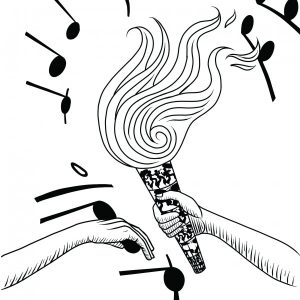New Orleans must find new ways to preserve its history
It is uncanny how visiting the city before and after Hurricane Katrina, the comparatively touristy parts of the city recovered to almost exactly how they were before. With tourism as a central part of the city’s economy, New Orleans throws a lot of money at retaining its appeal to visitors, maintaining one of the most well-preserved cultural centers of art, music and architecture.

The city, however, is also struggling to reconcile what that means going forward. With the recent debate over whether to remove Confederate war symbols, many residents have opened their eyes to the possibility that not all preservation is good preservation. New Orleans now faces the challenge of both maintaining its heritage and still being able to evolve socially.
How? Festivals. One of the first things every Tulane student hears from an enthusiastic tour guide is the quick fact that New Orleans allegedly has more individual festivals than there are days of the year. Festivals themselves have long since been an fundamental part of the culture of the city. Additionally, the integration of new festivals and the evolution of the existing ones have allowed New Orleans to keep its heritage, while still including new social values and ideas.
Two weekends past provides a great example. The French Quarter Festival, which first started in 1984, is a large gathering of art and music celebrated in the most historic part of the city. With the art coming from all different types of artists in both modern and traditional styles, ever since the beginning, French Quarter Fest has exemplified the path New Orleans has been able to find in combining its incredible heritages with the new and constantly changing culture of its inhabitants.
Southern Decadence is another festival that has found its way in as part of the expanding social sphere. The festival, sometimes dubbed “the gay Mardi Gras” started in 1972 by an increasingly prevalent LGBTQ community. The festival utilizes the historic venue of the French Quarter, and it capitalizes on the tourist and party capacities of the city to host six-day-long celebration of diversity. The rise of the festival marks the dramatic evolution of the city’s culture.
Lastly, the biggest exhibition of New Orleans’s dedication to preserving its cultural heritage arrives this weekend during the Jazz and Heritage Festival. The Jazz and Heritage Festival was initially hosted on the site of Congo Square, the historic heart of the city’s African American community.
When created, the festival was designed to celebrate the music and culture that originated in New Orleans and Louisiana. Jazz Fest is a particularly good example of how the city has expanded culturally while still valuing its heritage because of how big its grown. Jazz Fest was moved to the fairgrounds because its original location became too small to hold the full extravaganza. Rather than switching out the older or less common music styles for modern popular music, the festival just grew. Now music at the festival includes everything imaginable, from jazz to rock to pop to folk and any number of other genres. The festival little by little incorporated all the aspects of the cities growing culture.
New Orleans has to decide how to handle the physical preservation of its history. The preservation of its cultural heritage, however, will live on as long as the city’s residents continue to find ways to celebrate it. It is often said that New Orleanians will find any excuse to party, but maybe it’s better to say that New Orleanians are proud and happy to live in their city.
Your donation will support the student journalists of Tulane University. Your contribution will allow us to purchase equipment and cover our annual website hosting costs.



Michael Owens • Apr 27, 2019 at 11:51 am
Well isn’t this special. I recently visited New Orleans. The city is not the way I remembered it. There is just something missing. You say it has maintained it’s distinctive culture. I do not agree. It has become a city of tribes. A contest of which culturally diverse group can make their point more clearly than the others.
In the 70’s the blending of the different groups and beliefs
Created a cohesive community,. I fear the emerging “ what about me” tribes will ultimately separate everyone. Needless to say, I have made my last trip to The New New Orleans.